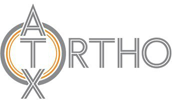SHOULDER PAIN
SHOULDER IMPINGEMENT SYNDROME / SUB-ACROMIAL BURSITIS / ROTATOR CUFF SYNDROME / SUPRASPINATUS DECONDITIONING / SHOULDER BONE SPUR
One of the main reasons patients visit the office is for shoulder pain. Shoulder pain can feel deep and be achy or sharp in quality. It’s sometimes associated with weakness or limits of range of motion. The patient can feel like its radiating from the neck or upper back and can feel like it radiates to the arm or down into the hand.
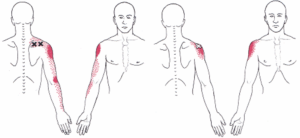
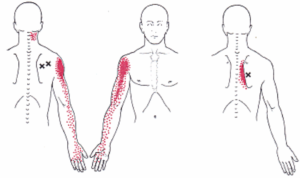
Overhead activity or crossed arm activity usually aggravates this pain and is because the ball (humeral head) compresses the rotator cuff tendons and bursa against the acromion bone above the ball. Other muscles attempt to stabilize the shoulder and are strained/overworked in the process.
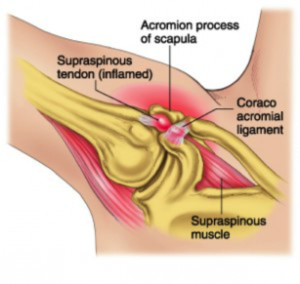
The reason this occurs is the shoulder joint stabilizing muscles ie the rotator cuff muscles have deconditioning or become overtaxed allowing the ball to elevate and mobilize away from the socket (from the larger muscles ie deltoid and pectoris). The upper trapezius is often involved and attempts to raise the acromion to allow for more space – so overworked trapezius muscles can cause pain/spasm in the trap and lower neck.
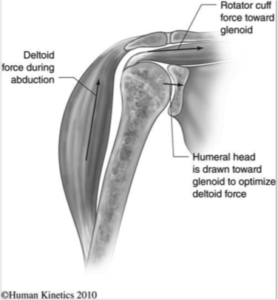 Note that the deltoid is a larger muscle and will elevate the humeral head if the rotator cuff muscles are not firing.
Note that the deltoid is a larger muscle and will elevate the humeral head if the rotator cuff muscles are not firing.
This is sometimes described as “impingement” syndrome. There are some surgeons who believe that bone spurs or bone calcifications are the source of this problem however new evidence suggests that an arthroscopic decompression does little to benefit these patients. The ‘bone spur’ has been there awhile and is not the cause of the patients pain, rather it’s the mild destabilization of the shoulder caused by overworked or deconditioned rotator cuff.
So this is a 2 part problem:
- Shoulder unstable due to muscle weakness.
- Muscles/Tendons/Bursa inflamed due to above.
To fix the problem:
Perform exercises as below. Note that until the muscles are strong this will continue to be a problem. The exercises may be painful or cause pain but they will continue to contribute to the problem until they are strong so its important to use NSAIDs or Tylenol to address pain and inflammation as a tool to get the muscles strong.
NSAIDs (Non-Steroidal Anti-Inflammatory Drugs)
Aleve (generic name: naproxen)
Advil/Motrin (generic name: ibuprofen)
**Please check with your primary care doctor to see if its safe to take these medications as they can make blood pressure mediations less effective and are contraindicated with prior history of ulcers.
ROTATOR CUFF STRETCHING and STRENGTHENING
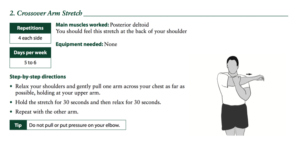
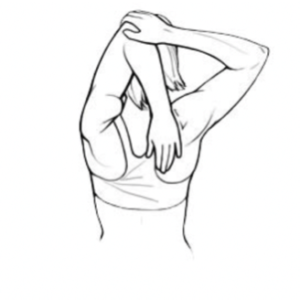
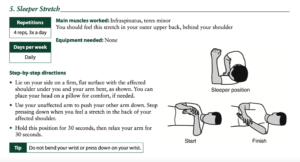
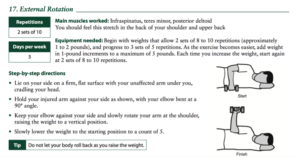
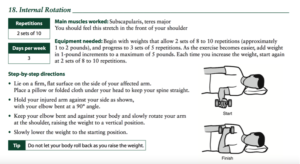
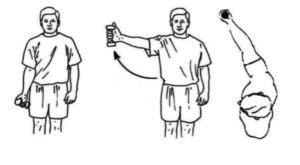
- Start with no weight, then can of Coke, then up to 2 lbs, OR a THERABAND ie resistance band
- Hand shoulder stay below shoulder level
- Thumbs up or down
PHONE ALARM recommended 4x per day sets of 10-15 reps.
